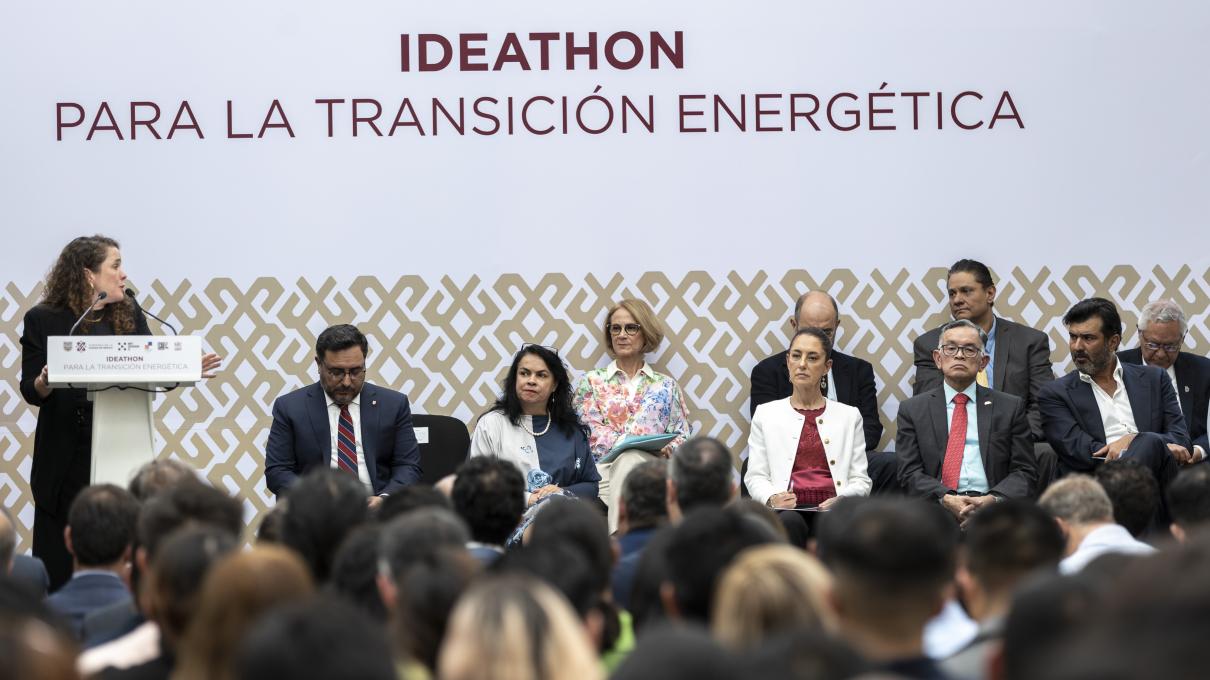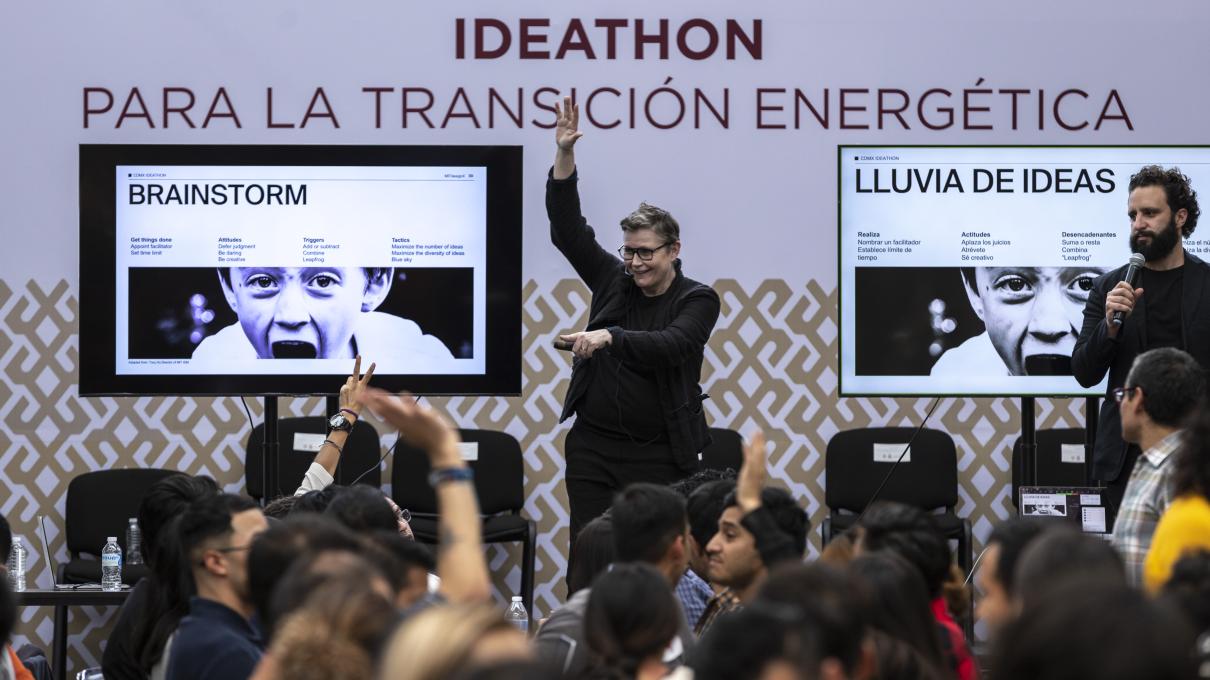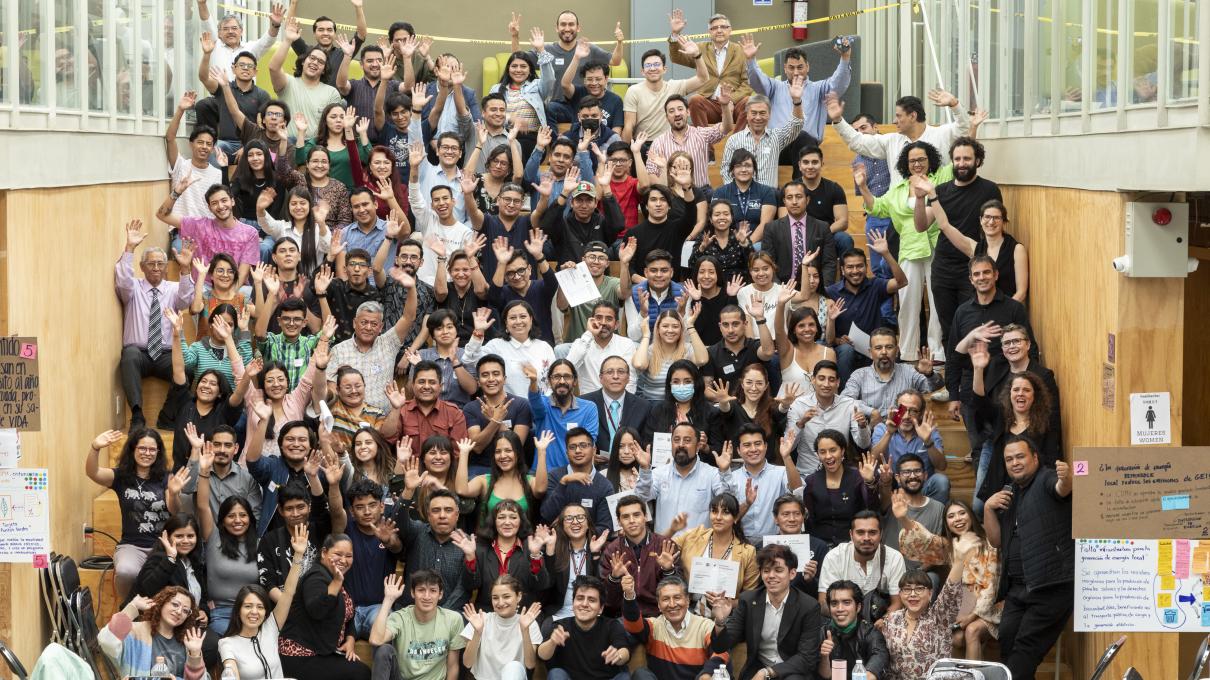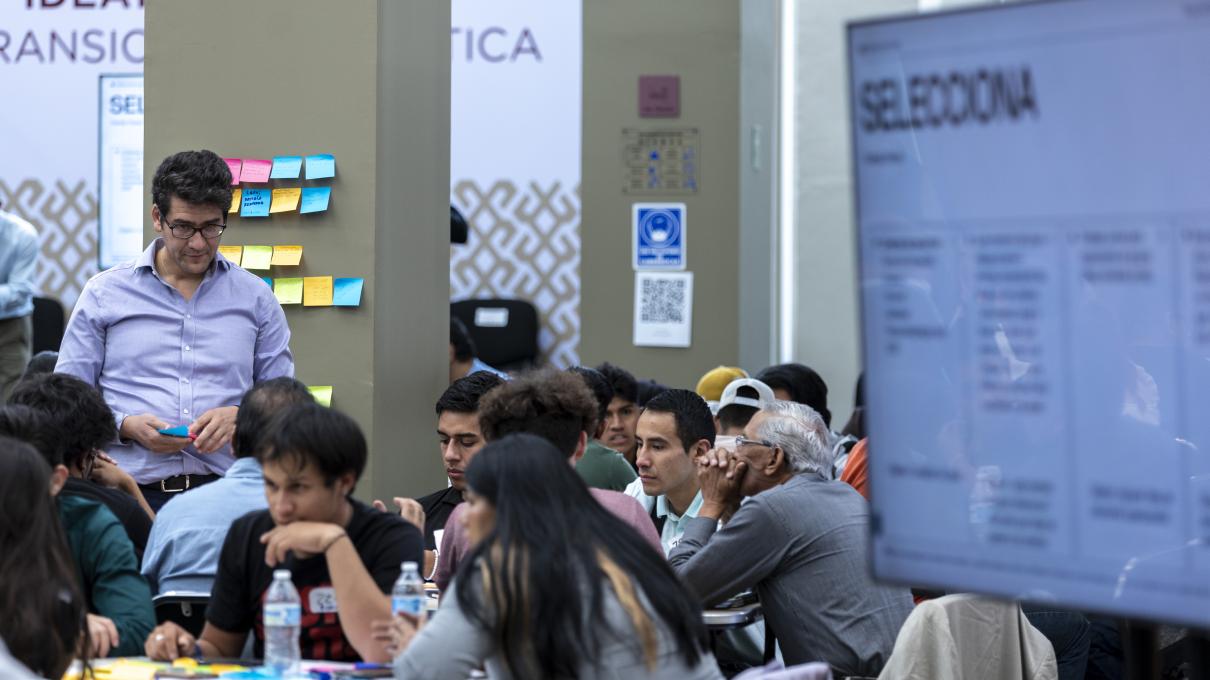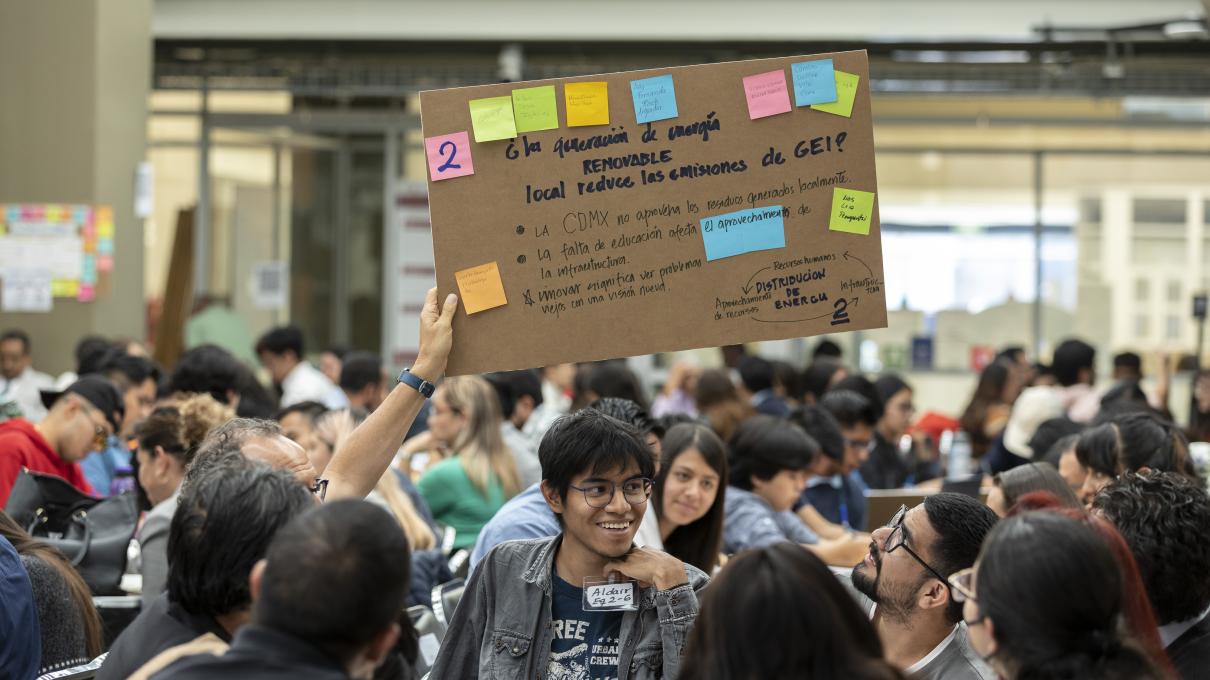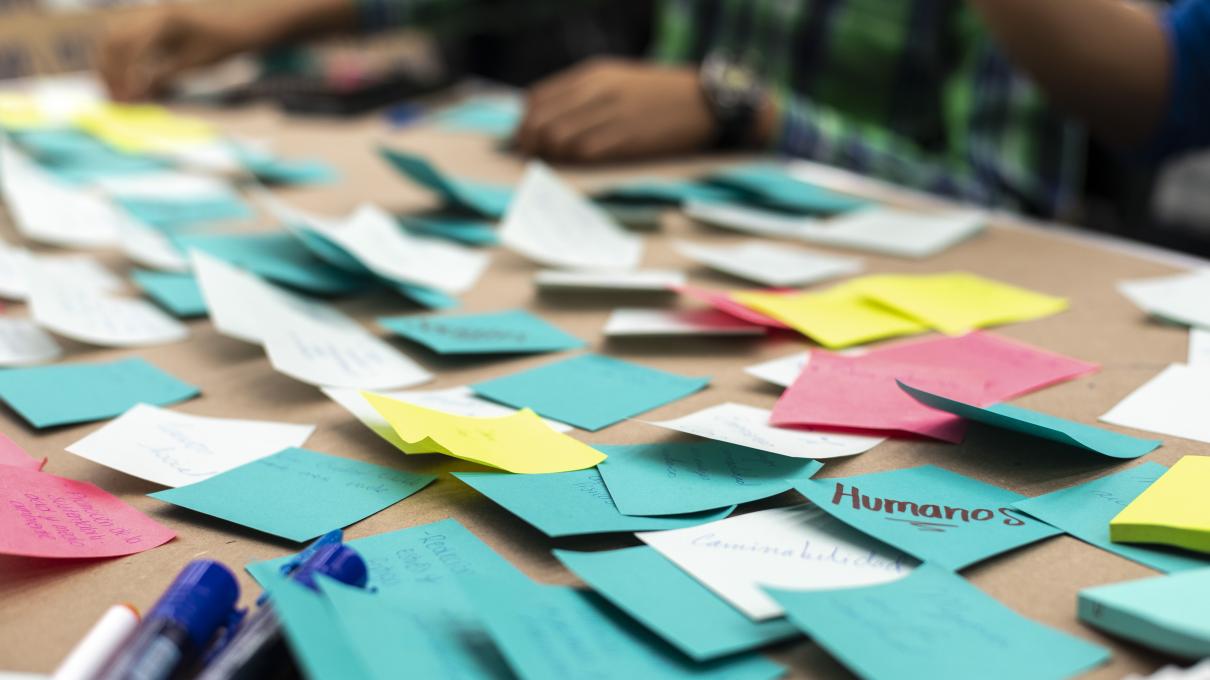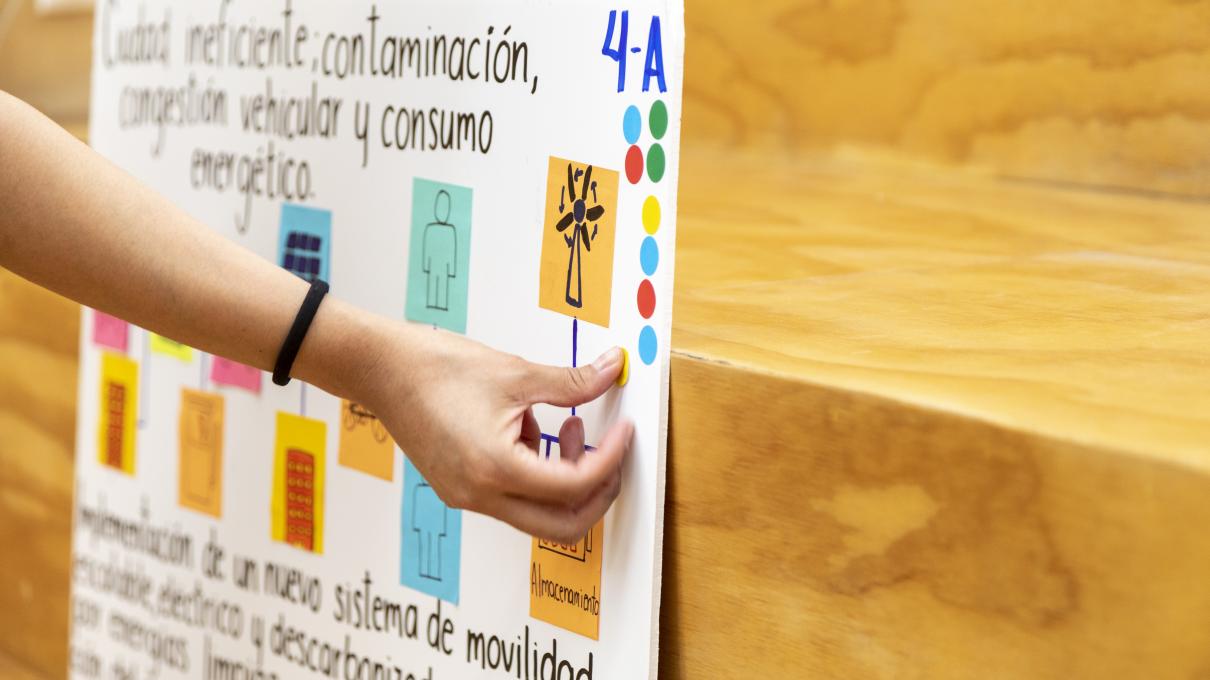A new collaboration led by MIT Norman B. Leventhal Center for Advanced Urbanism and MIT DesignX supported by Mota Engil Mexico’s Laboratorio para Mejorar Nuestras Ciudades is tackling the energy transition in Mexico through research, innovation, and civic debate. In May, a team of MIT faculty and researchers joined Mexico City’s Secretaria de Educación, Ciencia, Tecnología e Innovación (SECTI) at CDIT Vallejo-i, Mexico City to host an Ideathon–the first in a series of events to foster innovation and public engagement.
Over 29-30 May, the Ideathon hosted over 200 participants from universities and industries who generated 1,500 ideas to envision a clean energy future, intersecting water, energy, water, materials and education. From these ideas, 30 solutions were identified, developed and presented. Following the Ideathon, applications opened for the MITdesignX Accelerator. Eight entrepreneur teams will be selected to be mentored by MIT Design-X over July-August 2023 and ultimately one team will be awarded funds to build a prototype of their project.
While entrepreneurs are working with MIT’s Design-X, researchers at MIT and local universities will begin in-depth research studies focusing on the sustainable energy sector through the LCAU’s Request for Proposals on Mexico City: Energy Transition & Urbanization. This call seeks to support collaborative research between MIT and local universities partners in Mexico. Through this Ideathon and the joint call for research, the work will contribute to the existing landscape of innovation in Mexico City, and spark new sustainable approaches to the planning and design of metropolitan environments.
“This Ideathon marks the MIT Norman B. Leventhal Center of Advanced Urbanism’s second year of working with Mexico City. The first year brought about award winning work decarbonizing and recycling building materials in the exhibition at Mextropoli, Suenos Con, and a strategic plan for the Laboratorio para Mejorar Nuestras Ciudades. Our work together is based on the premise that creating change in cities does not happen overnight and it is through long-term relationships with Cities that we can help create innovation.” Shared Associate Professor Sarah Williams.
